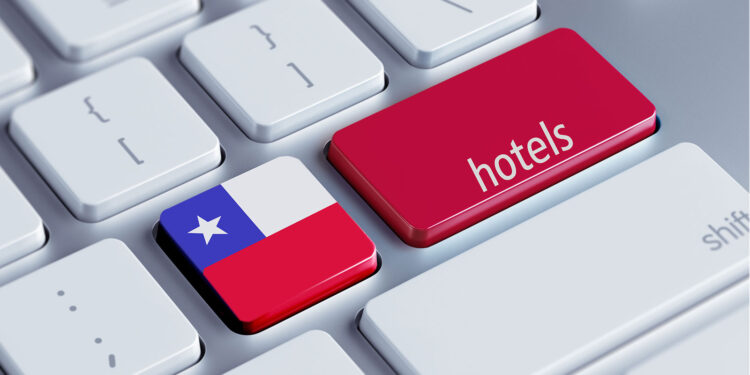Business Aircraft Ops to Chile: Additional Operating Considerations

This is a post by author Mariana Tsymbalista. Mariana is the FBO Assistant at Aviasur, a Universal Aviation® Certified ground handler, which has an FBO in Santiago, Chile and provides ground support throughout the country. Mariana is an expert on business aircraft operations in Chile and can be contacted at marianatsymbalista@univ-wea.com.
This business aviation blog post is part of a series on operating to Chile and continues from our last article: “Business Aircraft Ops to Chile: Flight Planning and Weather.”
One of the most prosperous countries in South America, Chile is an important and frequent destination for business operators. Rounding out our series on business aircraft ops to Chile, in this article we’ll cover some remaining miscellaneous items that you’ll be to be aware of before operating here.
1. Required personal documents
All visitors to Chile must have passports valid for their length of stay in country. Passengers, depending upon nationality, may require visas, and these must be obtained prior to arrival. If you arrive in Chile without a required visa you may be detained, while your embassy is contacted to try to resolve the issue, or you may be deported. Crew members, regardless of nationality, that are listed on the gen dec do not require visas for Chile. Note that certain nationalities—specifically, Albania, Australia and Mexico – must pay “reciprocity fees” in order to enter Chile. In the case of Albanian and Australian nationals, these reciprocity fees are paid once and cover the remaining validity period on the passport. In the case of Mexican nationals, reciprocity fees are payable for every entry into the country. These fees are paid on arrival, and ground handlers often extend credit for this.
2. Vaccination and agricultural considerations
There are currently no mandated vaccination requirements for travel to Chile and no particular requirements or restrictions regarding the Zika virus. Upon international arrival, any open packages of grains, meats and animal products must be declared and removed from the aircraft where they will be destroyed as international waste. Sealed food products and catering may, in certain cases, be permitted to remain onboard. If you are planning on bringing food items into the country, it’s recommended that you communicate with your ground handler to ensure there aren’t any issues.
3. Disinsection of aircraft
All aircraft arriving in Chile must undergo disinsection. This may be done prior to arrival, usually at top of descent, with an approved spray. If this has not been accomplished prior to arrival, a local agriculture official will provide the spray disinsectant and have the crew disinsect the aircraft on the ramp. Passengers may leave the aircraft prior to cabin disinfection.
4. Security considerations
Chile is a very safe country with few incidents of petty or violent crime impacting visitors. In terms of personal safety, it’s recommended that caution be exercised when traveling to the dessert area of the country, as people tend to get lost here from time to time. When traveling in these areas it’s best to have someone with you who’s familiar with this region.
5. Rental vehicles
For local transport, rental vehicles are a recommended option for crews on longer layovers. Most large airports in Chile have rental car facilities on-site, and your ground handler may be able to bring the vehicle over to the fixed-base operator (FBO) at Santiago (SCEL) during week days. During weekends you may need to go over to the main terminal to pick up your vehicle. At other airports, you’ll pick up rental vehicles within the main terminal, and this is also where customs, immigration, and quarantine (CIQ) will be cleared.
Most rental vehicles have automatic transmissions and GPS units are available upon request. In Santiago, and other larger cities, most street signs are in both Spanish and English, but at smaller locations they may only be in Spanish. Public taxis are considered safe in Chile, and prices for taxi services are generally low. In Santiago, Uber is also a good option and usually offers nicer vehicles than public taxis.
6. Hotel options
Santiago and other larger cities in Chile offer a good range of 4- and 5-star crew accommodation options, including boutique, luxury and large international hotel chain properties. Average cost for a 4-star property is 160-200 USD per night. SCEL, located about a 45-minute drive from the city center, also has a selection or airport hotels available. Other airports in Chile are usually just a 5 – 10 minute drive from the city, and most crew opt to stay in the city center. However, Easter Island (SCIP) has limited good quality hotel options and hotel pricing here is generally higher than in the rest of the country.
7. Peak travel periods
Santiago hotels tend to fill up during holiday periods, such as the Easter holiday in March, as well as during some large local events. Southern Chile is very popular during the December-March summer season with hotels in high demand. Short notice hotel requests during this period can be more challenging.
8. Crew layovers
There’s plenty to do in Chile during short or long layovers. Try the local cuisine, visit area art galleries/museums or take a tour of the wine country. The beaches near Santiago are recommended during summer season. Skiing areas are located within 30 minutes of downtown Santiago, and there are also smaller ski resorts available in the south of the country.
9. Additional reading: Business Aircraft Ops to Chile – Series Index
Note: Links will be updated as articles are published.
- Part 1 – airport operations
- Part 2 – ground handling
- Part 3 – customs, immigration and quarantine
- Part 4 – airport slots and permits
- Part 5 – aviation fuel and security
- Part 6 – flight planning and weather
- Part 7 – additional operating considerations
Closing Reminders
It’s important to ensure that you have the correct documentation for entry into the country. Passengers who arrive without a visa – when needed – may not be permitted into the country. Also, when traveling to this country, disinsection is required when traveling to Chile.
Questions?
If you have any questions about this article or would like assistance planning your next trip to Chile, contact me at marianatsymbalista@univ-wea.com.




